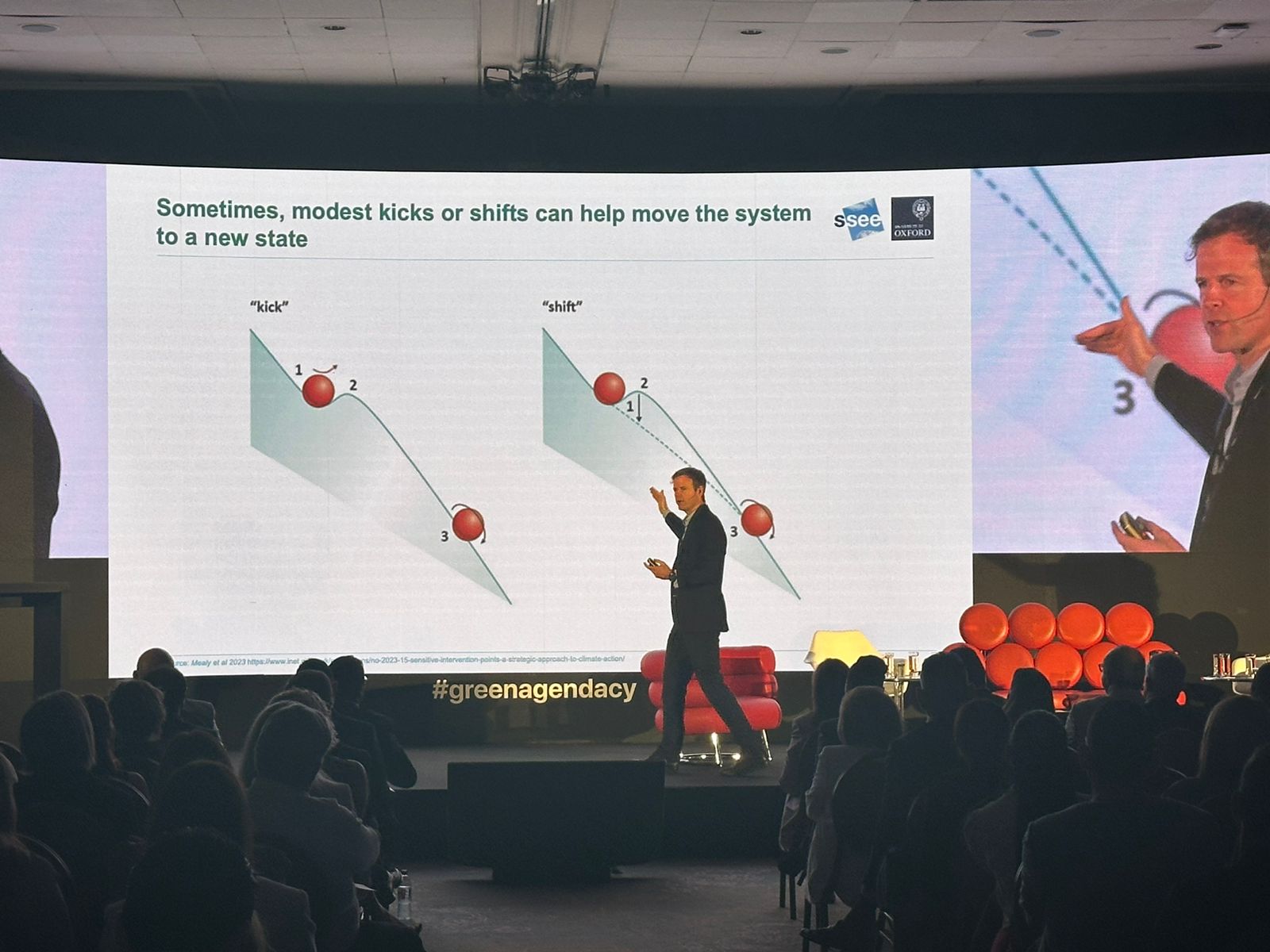
Andreas Karamitas
During his presentation at the Green Agenda Cyprus Summit held today at the Hilton Nicosia, Professor of Environmental Economics at the University of Cyprus, Cameron Hepburn, discussed Cyprus' energy transition and its decoupling from fossil fuels to achieve zero emissions and protect the environment. He also highlighted the economic opportunities arising from the green transition. During his speech, Professor Hepburn questioned how, in 2024, a country with so much sunshine could be so dependent on fossil fuels and incur such high costs for pollutants. He also pointed out that Cypriot consumers pay the highest electricity prices in the EU. However, he acknowledged the ongoing efforts in Cyprus toward a green transition, calling it an important economic opportunity.
Much of the discussion around the green transition focuses on economic costs. While some of these costs are real, often what is referred to as "cost" is actually an investment that yields returns in the short, medium, and long term. In many cases, actions to achieve net-zero emissions, reduce pollution, and protect nature bring immediate net benefits when considering impacts on health, productivity, and job creation.
Cyprus' Position in Relation to the EU Green Deal
In Cyprus, the new National Governance System for the European Green Deal was approved by the Council of Ministers (CoM), and the implementation of the National Energy and Climate Plan was introduced under the Regulation on the Governance of the Energy Union's Climate Action. The National Energy and Climate System was further developed with the launch of this new system, initially approved in November 2017. Specific to Cyprus, areas of focus under the EU Green Deal include addressing challenges related to water scarcity, enhancing the use of renewable energy sources such as solar energy, and promoting sustainable agricultural practices. Cyprus is currently engaged in discussions, negotiations, and policy-making processes to ensure the effective implementation of the EU Green Deal while considering its specific circumstances and challenges.
Where Cyprus Stands in Relation to Green Energy
Professor Hepburn noted that Cyprus is making efforts to promote green energy and transition to a more sustainable energy system. Like other EU Member States, Cyprus is committed to meeting the renewable energy targets set by the EU, aiming to increase the share of renewable energy in the country's total energy consumption. Currently, the share of renewable energy in electricity consumption in Cyprus is below 20%. Notably, imports related to green energy production in 2022 almost tripled compared to 2021.
Zero Carbon Pollutants
Cyprus is still expanding the green energy sector to reduce emissions, with growing recognition of the importance of renewable energy and sustainability. Continued efforts in policy-making, investment, and technology development will be vital to further advance Cyprus' transition to green energy. Achieving lower emission rates in Cyprus will require a significant reduction in the share of petroleum products in primary energy needs, along with the adoption of natural gas for power generation, electrification of the end-use energy sectors, high penetration of renewable energy sources, and effective zero emissions by 2050.

Where the Country Stands in Relation to the 2030 Targets
Professor Hepburn stated that Cyprus still has significant work to do to achieve the 17 United Nations Sustainable Development Goals (SDGs) outlined in the 2030 Agenda. While there is progress in some areas, such as poverty reduction, quality of life, and health, Cyprus' performance in achieving most of the goals remains below the EU average, particularly in areas related to affordable and green energy, sustainable consumption and production, decent work and economic growth, climate change, quality education, and zero hunger.
Global Demand for Renewable Energy
Professor Hepburn concluded by noting that the development of solar and wind energy now meets almost all of the new global electricity demand. In California, batteries may dominate in meeting peak evening demand, while China leads in electric vehicles and electrification, and is making strong advances in renewable energy.

[This article was translated from its Greek original]
































